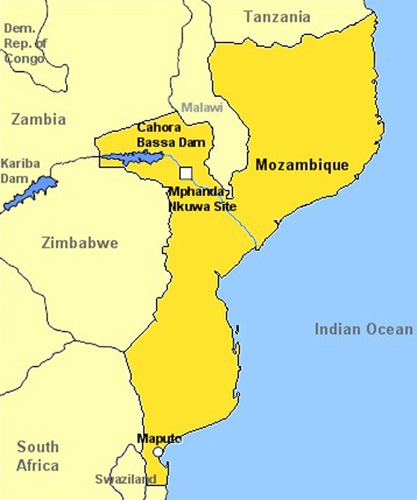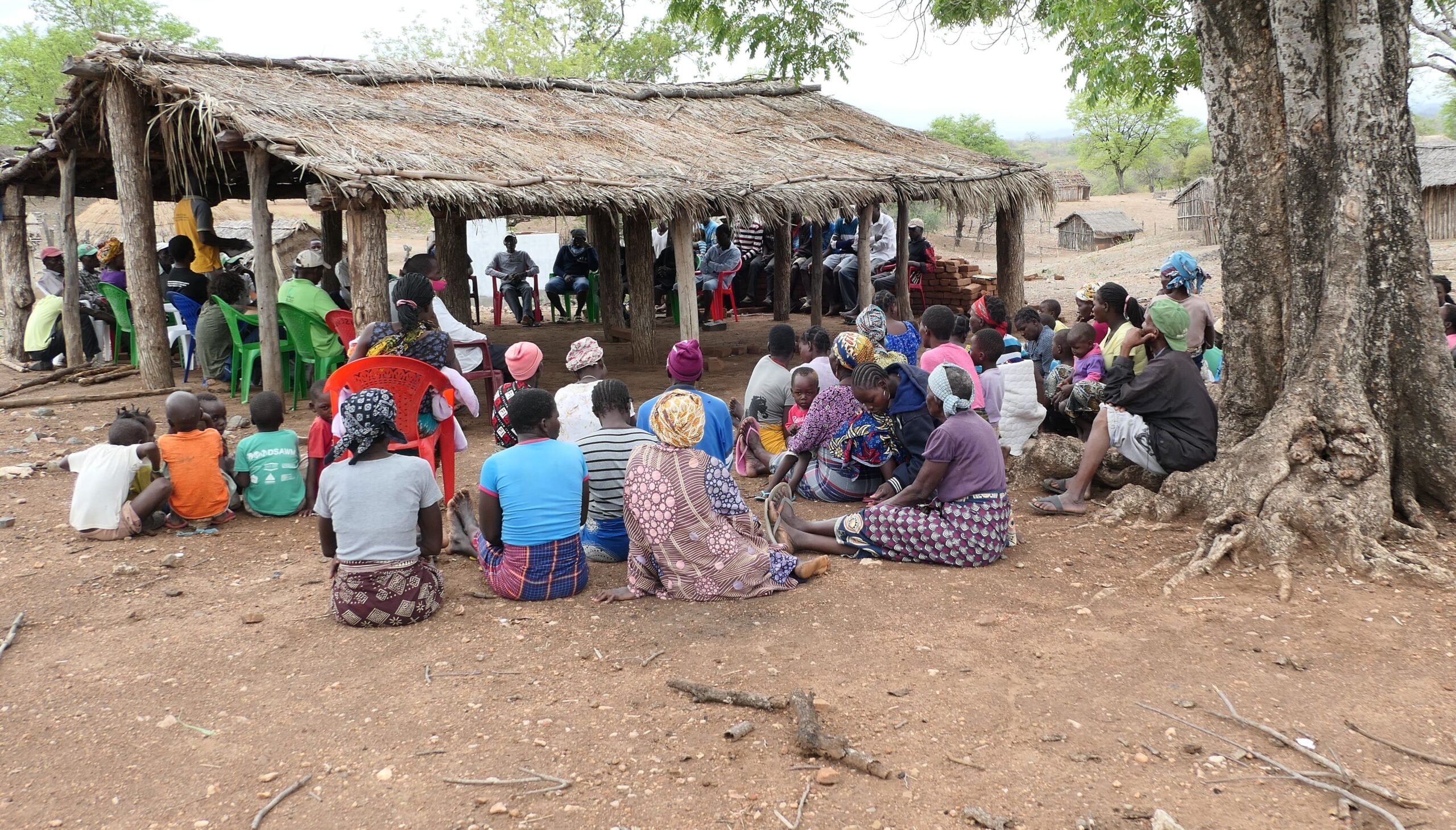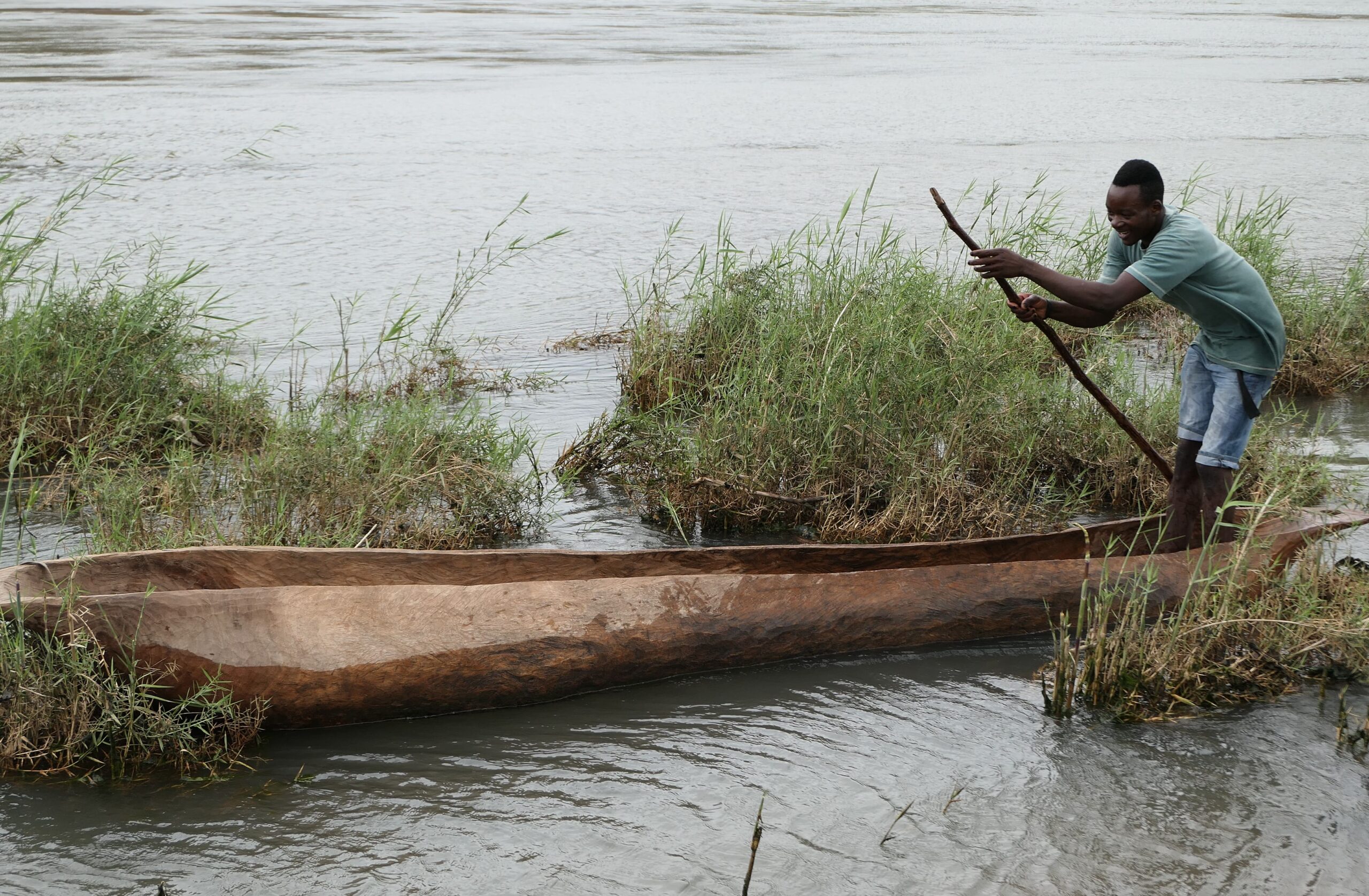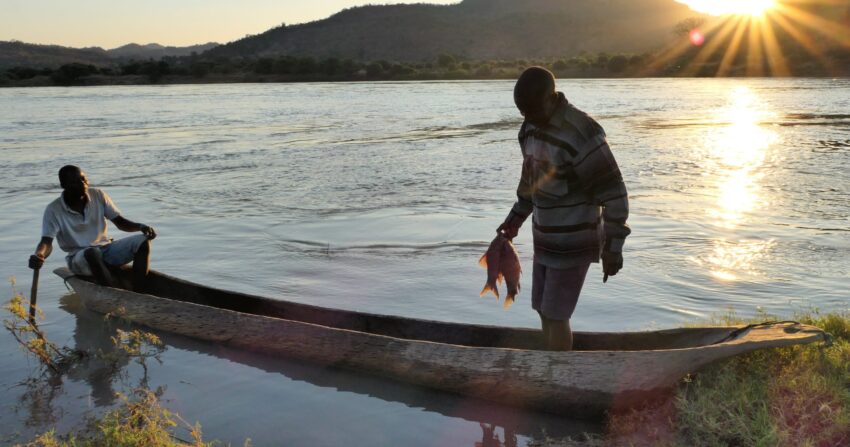The World Bank argues the project will accelerate the energy transition in southern Africa, but people facing displacement say their voices are not being heard
Cornélio Pacate has worked as a farmer all his life in the village of Chacucoma, along the banks of the lower Zambezi river in rural Mozambique. Today, he fears having to leave his homeland to give way to a $4.5 billion mega dam.
An estimated 1,400 families could be displaced by the Mphanda Nkuwa hydropower project due to be built across the river in what would be Southern Africa’s largest dam. Another 200,000 people could be affected downstream.
The government of Mozambique has touted the 1.5GW Mphanda Nkuwa dam, in the district of Marara, Tete province, as key for the southern African nation to address energy poverty and reach its goal of universal energy access by 2030.
But environmental groups say the dam threatens to negatively impact local communities and ecosystems. Local people told Climate Home News they haven’t been consulted on the project and have only heard about it through non-official sources.
Moreover, climate impacts and increasingly erratic rainfall risk making the project unviable, scientists say.
In spite of outcry from local people and green groups, both the World Bank, through its private investment arm the International Finance Corporation (IFC), and the African Development Bank (AfDB) are supporting the project and pushing for the dam’s construction.
The project is expected to “accelerate the transition to clean energy to combat climate change in Southern Africa,” said IFC.

The Mphanda Nkuwa hydro project site is located in the Zambezi river (Photo: International Rivers)
In May last year, the two development institutions acted as advisors to develop the dam, hoping it will become “attractive to reputable developers, financiers and investors to ensure competitive and least-cost power for Mozambique and the region,” AfDB said in a statement.
Sources told Climate Home that the European Union and the European Investment Bank (EIB) have considered getting involved, but have not yet made a final decision.
At the end of 2022, Mozambique became Africa’s newest gas exporter despite 72% of its population having no electricity access. The Mphanda Nkuwa dam is the country’s largest venture into renewable energy and is designed to supply power domestically.
Yet, studies have shown that large-scale hydro may not be as clean as previously thought. While considered a source of low-carbon energy, large hydropower projects emit significant amounts of methane, a greenhouse gas 80 times more potent than carbon dioxide.
The social impact of large hydro projects has also been criticised for violating indigenous peoples and local communities’ rights, and increasing the risk of over-topping and flooding for people living downstream.

The Chirodzi-Nsanangue community during a meeting with Justiça Ambiental (Photo: Justiça Ambiental)
Dam for development
The government of Mozambique has earmarked the Mphanda Nkuwa project as a national priority in the country’s energy master plan. It’s also a priority investment for the Southern Africa Power Pool Plan.
The dam will be built in the lower part of the Zambezi river basin, around 60 km downstream from the existent giant hydropower plant at Cahora Bassa, known as HCB. Under current plans, the project is expected to reach financial close in 2024 with commissioning to start in 2031.
Government officials, the IFC and AfDB say that Mphanda Nkuwa is key to bringing energy and development to Mozambique.
“The project reinforces our efforts to combat climate change in a region that is desperately short of power but equally in need of transformation and a just energy transition,” said Kevin Kariuki, AfDB’s vice president for power, energy climate and green growth.
Carlos Yum, managing director at the project’s office under Mozambique’s energy ministry, said that Mphanda Nkuwa will support the country’s industrialisation and provide “reliable transmission infrastructure”.
Governments sworn to secrecy on ‘$20bn’ for Indonesia’s energy transition
Resettlement anxiety
The Mphanda Nkuwa project is poised to result in the eviction of farming communities from their land. But people in the affected areas told Climate Home that nobody has yet come to inform them about the plans or seek their consent.
“No one has ever sat down with us to explain about the project or about our rights,” said Horlando Elias Djaquissone, who has lived in the Chacucoma community for 14 years.
The community of Chirodzi-Nsanangue, in Marara district, lies at the heart of the project area. Fisherfolk, artisanal miners and farmers who “rely on the river and its banks for everything” have the most to lose, says a report sent to the EU and EIB by environmental group Justiça Ambiental (JA), which is part of Friends of the Earth International.
The group estimates that more than 1,400 families living in the region could be displaced, and a further 200,000 people living in the delta area would be affected.

A fisherman in the Zambezi river in Mozambique, a sector that is threatened by the Mphanda Nkuwa hydro project (Photo: Justiça Ambiental)
Farmers in the communities of Chacucoma and Nhahacamba live off growing maize on small-holding plots, fishing and artisanal mining, as well as raising cattle, goats and chicken.
But the province of Tete does not have plenty of arable land to resettle the communities of mostly subsistence farmers, the report highlights.
And it’s not the first time some communities have been asked to move. 15 years ago, a coal mine in Marara resettled farmers to infertile lands where they couldn’t grow crops, and where housing conditions were unsafe. In the 1970s, the HCB dam, developed under Portuguese colonial rule, displaced around 30,000 people in the region.
Cornélio Juliano Pacate, of Chacucoma, who sells fish and produces crop all year round, fears he might lose his livelihood if he is resettled. “I don’t want to leave because there might be problems where [the government] will relocate me to,” he told Climate Home.
A preliminary assessment carried out by TMP Systems, a development consultancy agency, suggested the project could see an increased cost of $1.3bn due to resettlements negotiations and social disputes around displacements.
Wrong direction
Civil society groups have been sceptical about the benefits and sustainability of the project.
The country already produces enough energy to meet domestic needs, but most of Mozambique’s population cannot access electricity, said Anabela Lemos, director of Justiça Ambiental.
Electricity is one of Mozambique’s largest exports. In 2021, it came third after aluminium and coal, and generated nearly $570m in revenue. Last November, the country exported its first liquified natural gas (LNG) to the European market.
“T
Read More

